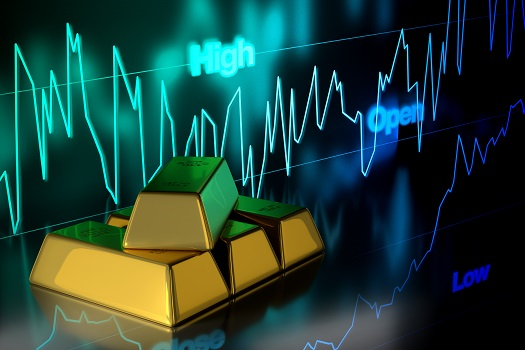How Has Coronavirus Affected Bullion Prices?
Many things can alter the spot price of precious metals. Election cycles, metal shortages, global catastrophes, and economic recessions factor into supply and demand for bullion. The COVID-19 pandemic is an unprecedented event that has affected the metals market in unexpected ways. The professionals from First National Bullion and Coin, San Diego gold and bullion dealers with years of experience collectors can rely on, offer details about how coronavirus has affected bullion prices.
Recent Price Fluctuations
At the beginning of March 2020, we began to see an increased response to COVID-19 in the U.S. Around this time, we also saw the largest dip in the spot price of precious metals since the pandemic first began. March opened with gold priced at around $1,590 per ounce. Over the next three weeks, the spot price steadily declined until it reached approximately $1,470 per ounce on the 19th of March. After this drop, we began to slowly see the price climb again, reaching just under $1,600 per ounce at the beginning of April. May and June have seen the price rise even higher than when COVID-19 first began exploding in the U.S., and it’s now selling at nearly $1,750 per ounce. This is, surprisingly, the highest price gold has reached since 2012. Silver took a very similar hit in the beginning of March, dropping from around $17.30 per ounce to just over $12 in a matter of only two and a half weeks. Silver suffered an even slower recovery period than gold did, creeping a few cents in either direction daily for months. The highest silver spot has reached since the beginning of COVID-19 is the current price of around $17.70.
Effect of Rising Unemployment
When COVID-19 began forcing businesses to close, many people were sent home with no possibility of earning paychecks. As luck would have it, times of crisis are when investing in precious metals can really pay off. Many people began to liquidate part or all of their bullion reserves to make ends meet and put food on the table. Businesses were shuttering their doors for weeks or months at a time, including coin stores, jewelers, and pawn shops that specialize in gold and silver, which meant fewer people were able to purchase precious metals. Waning demand then caused a decrease in spot price, which is when the dips in charts began to form.
Impact of Reopening Businesses
Luckily, more shops are now slowly being allowed to reopen for business. Many states and cities began to relax regulations on essential businesses and social distancing in late April and into May, which coincided with a crucial uptick in spot prices. More people were able to buy, sell, and trade their bullion in person. In the past, after large disasters or other unfortunate events, the dollar has dropped in value, sometimes leading to short-term economic recessions. Fortunately, bullion is perfect for these recessions because it holds its inherent value extremely well. This likely explains the rising demand for metals, thus leading to spot prices climbing as high as they have.
Whether you’re a veteran gold coin collector or you’re interested in buying bullion for investment purposes, you’ll find a fantastic variety of high-quality precious metals at First National Bullion. San Diego residents who are looking to work with only the most reputable precious metals experts should give us a call at 858-666-6570 to speak with one of our knowledgeable representatives.
The statements made in this blog are opinions, and past performance is not indicative of future returns. Precious metals, like all investments, carry risk. Precious metals and coins may appreciate, depreciate, or stay the same in cash value depending on a variety of factors. First National Bullion does not guarantee, and its website and employees make no representation, that any metals for sale will appreciate sufficiently to earn the customers a profit. The decision to buy, sell, or borrow precious metals and which precious metals to purchase, borrow, or sell are made at the customer’s sole discretion.


